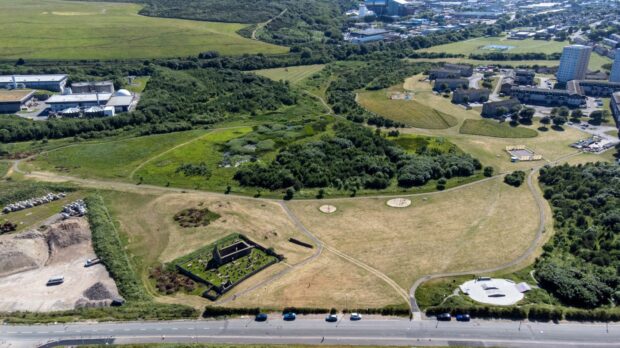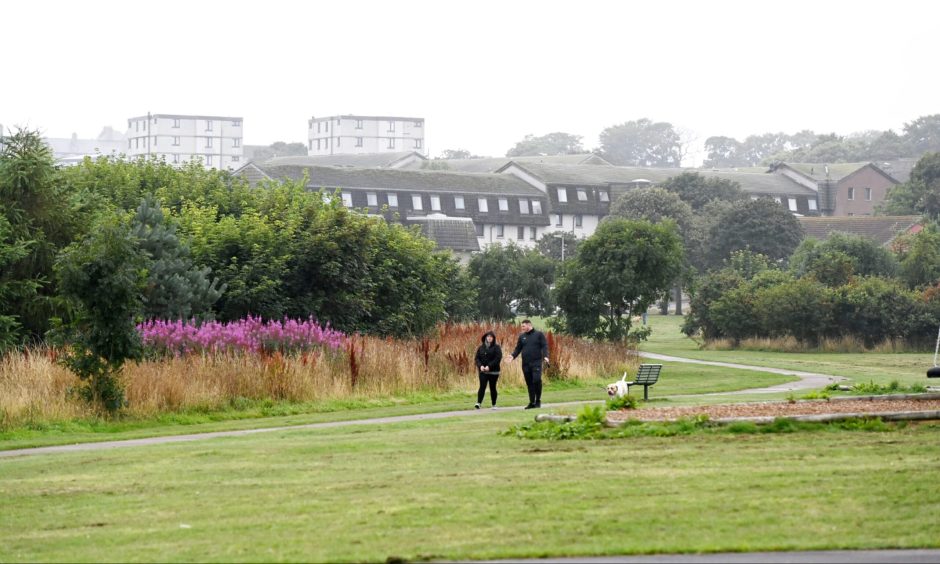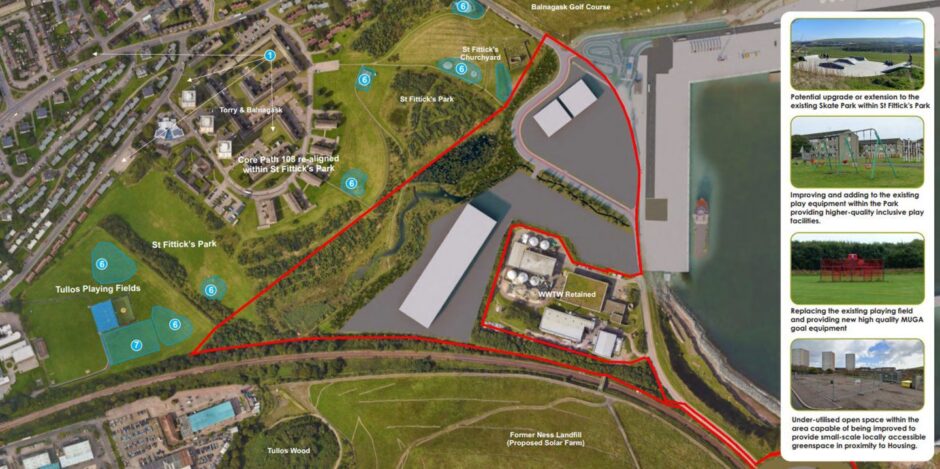Campaigners who want to stop the potential development of a beloved city park have lost a legal bid at Scotland’s highest civil court to overturn a council ruling about the site.
The activists believe Aberdeen City Council shouldn’t allow St Fittick’s Park in Torry to be developed.
They went to the Court of Session in July 2024, hoping that judge Lord Fairley would overturn a decision made by the local authority in September 2023
The campaigners believe that councillors were wrong to give the go head for formal talks with businesses over creating an Energy Transition Zone at the green space.
The scheme is seen by its supporters as a means of helping to diversify the North-east economy.
Opponents of the scheme maintain that the local authority failed to carry out a public sector equality assessment aimed at finding out the impact it would have on groups such as the young, elderly and disabled.
Lord Fairley dismissed the legal bid, saying that the local authority wasn’t obliged to conduct such an assessment at that point in time.
This prompted the campaigners to go to the Inner House of the Court of Session – Scotland’s highest civil appeal court.
Former SNP MP Joanna Cherry KC told judges Lord Malcolm, Lord Armstrong and Lord Clark that their colleague had misinterpreted the law.
However, in a written judgement issued by the court on Tuesday, the judges rejected the arguments made to them by Ms Cherry.
No flaw in legal reasoning
Lord Malcolm, who delivered the opinion, wrote: “It is plain that not every decision by a public body requires an equality impact assessment; were it otherwise public administration would grind to a halt.
“The determining factor here is whether the proposition that the resolution was a policy decision which approved development of the Park is well-founded.
“In our view it is not. We have not identified any flaw in the Lord Ordinary’s reasoning. The resolution of September 11 2023 concerning the Park occurred in the policy context of it having already been designated in the Aberdeen Local Development Plan as potentially suitable for development, including industrial use.
“That designation was not challenged. Any development of the park is contingent on the grant of planning permission and a Council resolution to lease the Park. Unlike the resolution of September 11 2023, both of those decisions carry the potential to create substantive legal rights.
“However, the resolution under challenge involves no more than the ingathering of information in the light of a policy decision already made and which may, or may not, lead to a process which does engage the public service equality duty.
“It cannot be said that, in the absence of a specific proposal, the view that an equality impact assessment was not required was unreasonable or erroneous in law.
“As submitted for the Council, it was entitled to await details as to any proposed development, including the economic and social effects; potential mitigations; any community benefits; and the potential for re-investment arising from a transaction.”
Legal challenge
In proceedings last year, solicitor advocate Mike Dailly, for the campaigners, argued that the council failed to carry out an impact assessment and the loss of the amenity could impact health and well-being.
The judicial review was carried out in the name of a man called Simon McLean, who was described in Tuesday’s judgement as being a resident of Torry and who used the park for “recreational, health and general wellbeing purposes.”
Aberdeen City Council opposed the legal move and maintained that the challenge was “premature”.
Lawyers for the council argued that the decision made by the council meant that it did not need to perform such an assessment. The lawyers argued that the process voted for on September 11 would allow the council to have the information it needed to perform the assessment at a later date.
Niall McLean, for the council, said at this stage it was not known what use the site would be put, how it would impact the community or how funds might be available to benefit the community.
He said these were all highly relevant factors to be taken into account that an impact assessment was to be carried out.
Lord Fairley published a judgment upholding the arguments made to him by the council’s legal team.
In the latest judgement, published on Thursday, Lord Malcolm concluded that the action must fail.
He added: “For these reasons the reclaiming motion is refused.
“We adhere to the Lord Ordinary’s refusal of the petition in his interlocutor of August 7 2024.”


